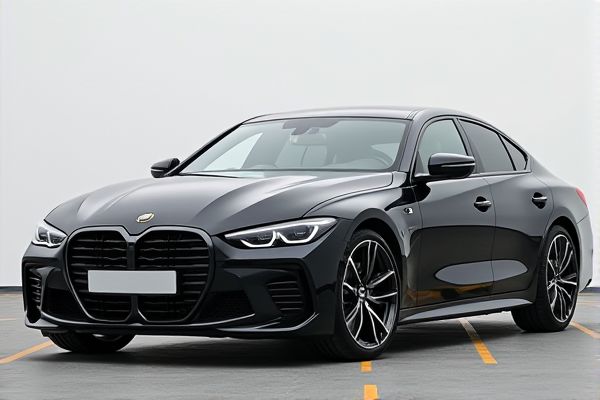
The average car lifespan in India varies significantly by brand. For instance, Maruti Suzuki vehicles typically last around 15 years with proper maintenance. Hyundai models often show durability, averaging about 13-14 years. Toyota vehicles are recognized for their longevity, often reaching 15-20 years if cared for well, while Tata cars generally have a lifespan of 10-13 years. Understanding these averages can help you make informed decisions regarding vehicle ownership and expected longevity.
Brands to consider
Maruti Suzuki
Maruti Suzuki is recognized for its longevity and reliability in the Indian automotive market, making it a preferred choice for many consumers. The brand's models, such as the Maruti Alto and Maruti Swift, consistently showcase impressive performance over time, contributing to an average car lifespan that often exceeds industry standards. Factors like affordable maintenance, widespread service network, and quality engineering enhance the durability of these vehicles. As you evaluate options, the established reputation of Maruti Suzuki for lasting value may influence your decision.
Hyundai
Hyundai is recognized for its reliability and durability, making it a preferred choice among Indian consumers seeking an average car lifespan. The brand's vehicles typically offer performance longevity, thanks to their robust engineering and efficient manufacturing processes. Models like the Hyundai Creta and Hyundai i20 exemplify this with favorable maintenance costs and dependable parts availability. Many owners report satisfaction with their Hyundai vehicles even after several years of use, contributing to the brand's strong reputation in the Indian automotive market.
Honda
Honda is recognized for its impressive average car lifespan in India, often surpassing 10 to 15 years with proper maintenance. Renowned models such as the Honda City and Honda Jazz feature reliable engines and solid build quality, contributing to durability. The brand's commitment to engineering excellence ensures lower failure rates and long-term performance. Honda vehicles also retain their resale value well, making them a practical choice for Indian consumers. Your investment in a Honda may result in sustained performance and longevity.
Toyota
Toyota is recognized for its exceptional reliability and durability, often translating to an average car lifespan of around 15 to 20 years in India. The brand's innovative engineering, combined with high-quality materials, contributes to lower maintenance costs and fewer breakdowns. Toyota vehicles like the Corolla and Innova are particularly noted for their longevity, making them a practical choice for Indian consumers. Your investment in a Toyota can lead to significant savings over time, reflecting both the brand's strong resale value and enduring performance.
Tata Motors
Tata Motors is recognized for its durable vehicles, often showcasing an impressive average car lifespan in India compared to competitors. Its engineering focus on quality materials and robust design contributes to longevity, making it a preferred choice among consumers valuing reliability. The brand's extensive service network enhances maintenance convenience, promoting prolonged vehicle life. Furthermore, Tata Motors' commitment to innovation in safety features and fuel efficiency adds to the overall value proposition for your driving experience.
Durability and Build Quality
Durability and build quality of cars in India vary significantly by brand, impacting their average lifespan. Brands like Maruti Suzuki often demonstrate reliable construction and longevity, making them popular among consumers. Hyundai also garners attention for its solid build quality and durability, contributing to a robust resale value. Tata Motors is increasingly recognized for its commitment to improving durability, with vehicles that withstand the rigors of Indian roads. When evaluating options, consider how build quality aligns with your long-term ownership plans.
Maintenance and Repair Costs
In India, maintenance and repair costs vary significantly by car brand throughout their average lifespan. For example, a Maruti Suzuki vehicle typically incurs lower maintenance costs compared to brands like Hyundai or Honda. Over the span of approximately 10-15 years, you should consider routine services, tire changes, and part replacements as important expenses. The total cost of ownership for these brands can differ based on factors such as model popularity and availability of spare parts in the market.
Engine Performance and Efficiency
Engine performance and efficiency vary significantly across car brands in India, with notable differences in fuel economy and longevity. For instance, Maruti Suzuki vehicles are widely recognized for their impressive fuel efficiency, often achieving 20 km/l or more in several models. The average lifespan of cars in India tends to be around 15 years, depending on maintenance and usage patterns. Factors impacting performance include engine design, technology employed, and driving conditions. Regular servicing and quality fuel play a pivotal role in maximizing vehicle lifespan and efficiency.
Resale Value and Depreciation
Resale value and depreciation vary significantly among car brands in India. For instance, Maruti Suzuki vehicles typically retain their value better than many competitors, largely due to their widespread popularity and reliability. Luxury brands, like BMW, often experience steeper depreciation rates within the first few years, making their resale values lower in comparison to mass-market brands. Your choice of brand can significantly influence the overall value retention of your vehicle throughout its average lifespan.
Customer Satisfaction and Reliability Ratings
Customer satisfaction and reliability ratings for car brands in India indicate varying levels of performance and durability. Maruti Suzuki, for example, consistently ranks high for ownership experience and longevity among users. Brands like Hyundai and Tata Motors also demonstrate commendable reliability, attracting positive feedback from their owners. Understanding these factors can help you make an informed decision when purchasing a vehicle. Data up to October 2023 reflects these trends in customer preferences and brand trust.
 indiabrand.org
indiabrand.org